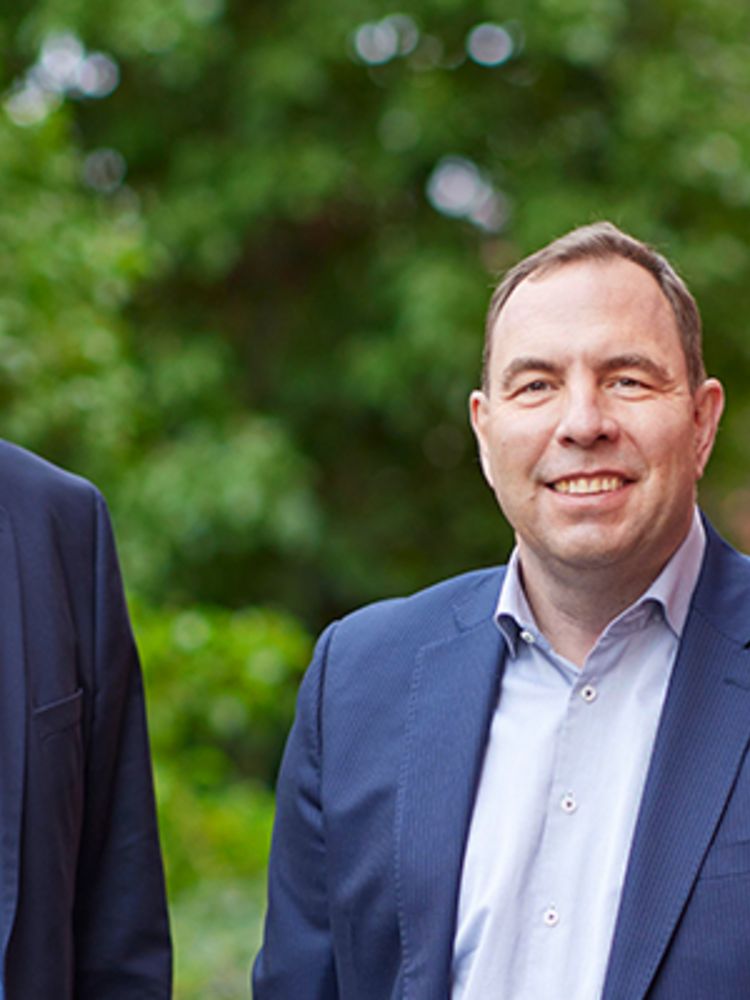BENTELER to produce only "green tubes" from 2045
Salzburg/Paderborn/Lingen, December 16, 2021. As shown and demanded at COP26 in Glasgow in November, industry must act if climate targets are still to be achieved. As a global company in an energy-intensive industry, BENTELER is aware of its responsibility for the environment. Christian Wiethüchter, Managing Director of BENTELER Steel/Tube has announced, "We plan to become CO2 neutral by 2045." He adds, "To achieve this goal, we initiated our ‘green tubes’ program in 2020, which focuses on reducing the CO2 footprint in tube production. Procurement and production play strategic roles in this but our product portfolio also underlines our sustainable focus. This is demonstrated, for example, by our new BENTELER HYRESIST line pipes for hydrogen, which support the development of hydrogen distribution networks."
"Green tubes" program: BENTELER moves towards climate neutrality in steps
The "green tubes" program is specifically concerned with the avoidance of CO2 emissions. Where this is not possible, the company tries to reduce or compensate. The metal processing specialist’s Steel/Tube division plans to halve its total CO2 emissions by 2030 and become CO2-neutral by 2045.
To achieve this goal, BENTELER Steel/Tube aims to achieve CO2 neutrality by 2030 for direct emissions (Scope 1) generated in production and for indirect emissions (Scope 2) generated through the purchase of energy. Emissions on the procurement side (Scope 3[1]) will be reduced by 30% in the first step. By 2045, BENTELER Steel/Tube also wants to become CO2-neutral on the procurement side and thus have greened the supply chain, production and products. Important measures on this path are, for example, the purchase of electricity from renewable energies and the use of CO2-neutral raw materials in the manufacture of welded tubes.
BENTELER seamless tubes are already particularly sustainable
BENTELER Steel/Tube is well positioned to achieve the targets set by 2045. Steel production at the company's electric steel mill in Lingen, Germany, already generates a total of only around 200kg of CO2 per ton of steel, through the use of an electric arc furnace and the recycling of steel scrap. By comparison, the blast furnace method produces around ten times this amount. By using renewable energies, the emissions can be reduced to less than 100kg of CO2 per ton of EAF (electric arc furnace) steel. BENTELER uses this CO2-reduced steel for the production of seamless tubes.
Through its sustainable commitment, BENTELER helps to better reconcile climate protection and mobility and at the same time supports its customers in achieving their own climate targets. "We are already certified according to ESG criteria because the issue of sustainability is very important to us. To continue on our path consistently and to prove our increased sustainability targets, we are aiming for renewed certification at the beginning of 2022. In addition, we are planning product-specific certifications. In this way, our CO2-reduced products can also have a CO2-reducing effect on our customers' balance sheets", emphasizes Ralf Brunnert, Director SHE & Operation Services, and together with Thomas Begemann, Director Strategy / Communication and Project Management, responsible for the "green tubes" program.
Sustainability as part of the corporate strategy
BENTELER was already working on sustainability before the strategic development of the "green tubes" program. Energy efficiency has been continuously increased at all sites in recent years, for example, through measures such as converting production hall lighting to LED technology or increasing thermal insulation in production halls. Waste heat from BENTELER Steel/Tube's production facilities is also used to heat public facilities – for example in Paderborn and Dinslaken. In this way, the company helps to avoid several hundred tons of CO2 per year.
A trump card in sustainable tube production: BENTELER’s electric steel mill in Lingen, Germany BENTELER covers the entire supply chain, from CO2-reduced steel production at its electric steel mill to tube manufacture. The electric steel mill in Lingen already produces steel exclusively from scrap, resulting in 90% fewer direct CO2 emissions than the conventional blast furnace method. In addition, BENTELER is looking into alternative raw materials for steel production that are just as CO2-neutral as recycled steel scrap. For example, a cooperation with RWE and CO2Grab has been formed to test the use of direct reduced iron produced with green hydrogen as a raw material in steel production. BENTELER seamless tubes are already particularly sustainable. For the production of seamless tubes, BENTELER sources steel from its in-house electric steel mill in Lingen. Using steel produced in an electric arc furnace, 500 to 800kg of CO2 is generated per ton of tube, depending on the amount of added value and production plant. If steel produced in a conventional blast furnace was used, this figure would be at least 1,500 kg CO2 per ton higher. |
[1] Excluding the utilization phase as well as "end of life" phase
